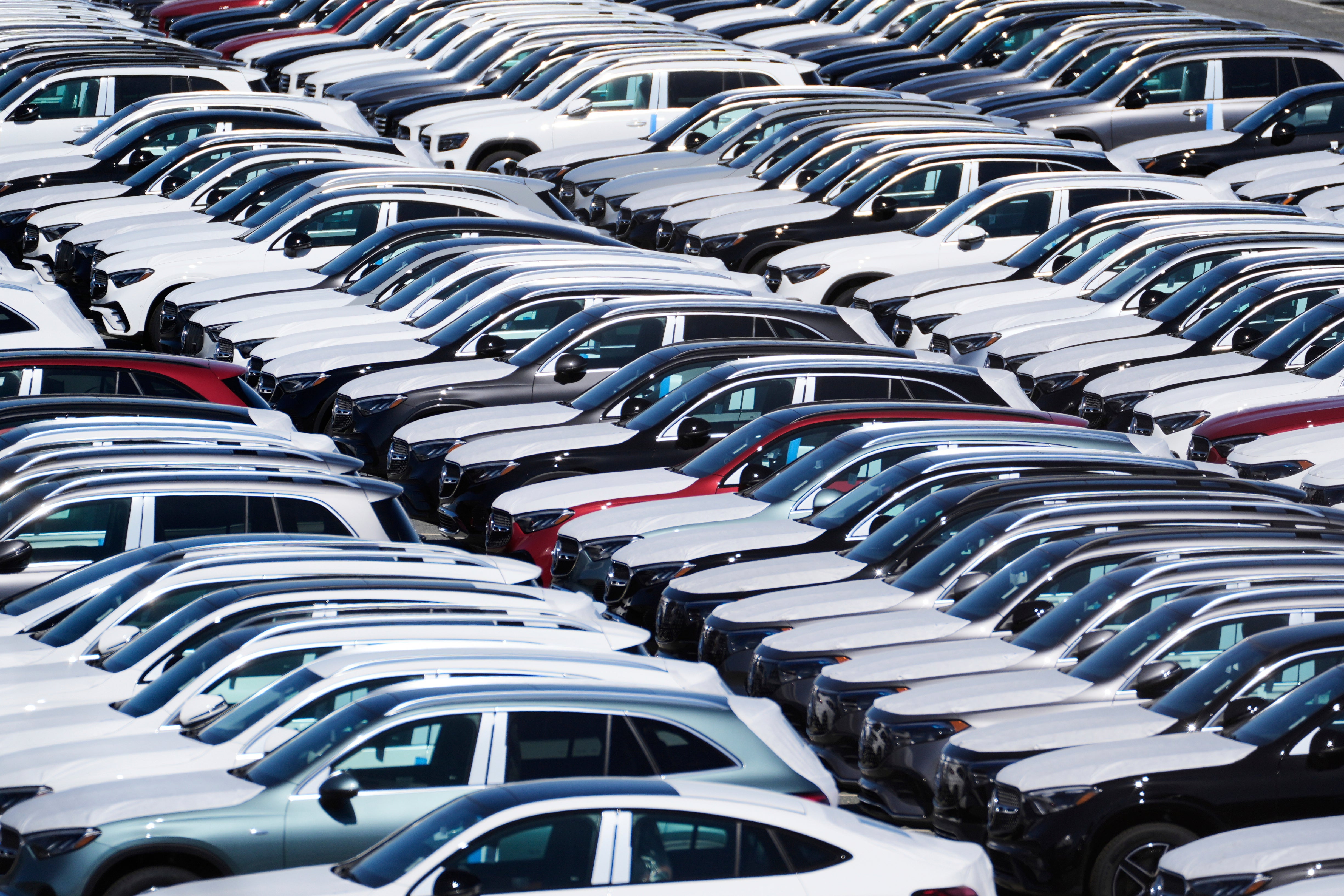President Donald Trump warned top automakers not to raise their prices in response to his 25 percent tariffs on imports that were announced this week, according to reports.
The president hosted a call with automaker CEOs in early March and touted the tariffs would be “great,” the Wall Street Journal reported. Auto industry experts have warned that the tariffs risk American consumers having to pay “thousands” of dollars more for vehicles.
CEOs Mary Barra of General Motors, John Elkann of Stellantis, and Ford’s Jim Farley were on the call, the New York Times reported earlier this month.
“Trump said they should be grateful for his elimination of what he called former President Joe Biden’s electric-vehicle mandate,” the Journal said of the call.
The president also “made a lengthy pitch” about how U.S. automakers would benefit from the hefty tariffs, two people on the call told the outlet. Trump said he was “bringing manufacturing back to the U.S. and was better for their industry than previous presidents,” they added.
“President Trump has been unequivocally clear for decades about the need to restore American Greatness. America cannot just be an assembler of foreign-made parts – we must become a manufacturing powerhouse that dominates every step of the supply chain of industries that are critical for our national security and economic interests,” White House spokesperson Kush Desai said in a statement to The Independent. “The Trump administration is committed to delivering on this vision with an America First agenda of tariffs, deregulation, the unleashing of American energy, and tax cuts,” Desai added.
In the latest escalation of Trump’s trade war, Trump confirmed levy duties of 25 percent on all imports of fully assembled vehicles starting April 3. “I think our automobile business will flourish like it's never flourished before,” the president said Wednesday, adding that he intends for the tariffs to be in place until the end of his term in 2029.
Auto suppliers in Detroit, synonymous with America’s automotive industry, warned they will have to raise prices because of the tariffs. “Tariffs, at any level, cannot be offset or absorbed,” Ray Scott, the chief executive of supplier Lear, said in an email to staff this week seen by the Journal. “A holistic, industrywide approach will be necessary to mitigate the impact,” Scott reportedly said.
The American Automotive Policy Council, which represents General Motors and Ford, said U.S. automakers are “committed” to Trump’s vision of increasing jobs in the U.S. in a supportive statement. It added it was “critical that tariffs are implemented in a way that avoids raising prices for consumers.”
Speaking to the Journal, the council’s president Matt Blunt said it was “difficult to see how imposed tariffs over time would not have some impact on prices.”

Other organizations echoed Blunt’s concern.
“For auto dealers and their customers, already reeling from rising vehicle and parts prices, as well as high interest rates and insurance costs, these new tariffs pose an additional and unwelcome challenge to affordability,” American International Automobile Dealers Association president and CEO Cody Lusk said in a statement.
Lusk said the tariffs will also put added pressure on the wallets of American families. “Tariffs could directly contribute to thousands of extra dollars on sticker prices,” Lusk added.
“Tariffs on U.S. trading partners, who are vital to our automotive supply chains, would make it harder for average Americans to afford the new vehicles of their choice,” Mike Stanton, president of the National Auto Dealers Association, said.
“The tariffs imposed today will make it more expensive to produce and sell cars in the United States, ultimately leading to higher prices, fewer options for consumers, and fewer manufacturing jobs in the U.S.,” Jennifer Safavian, president and CEO of Autos Drive America, which represents foreign auto manufacturers like Honda and Toyota, echoed in a statement.
The United Auto Workers union welcomed the tariffs and said they would push manufacturers to invest more in the U.S. and create more jobs.
“These tariffs are a major step in the right direction for autoworkers and blue-collar communities across the country, and it is now on the automakers, from the Big Three to Volkswagen and beyond, to bring back good union jobs to the U.S,” the union’s president Shawn Fain said in a statement.







